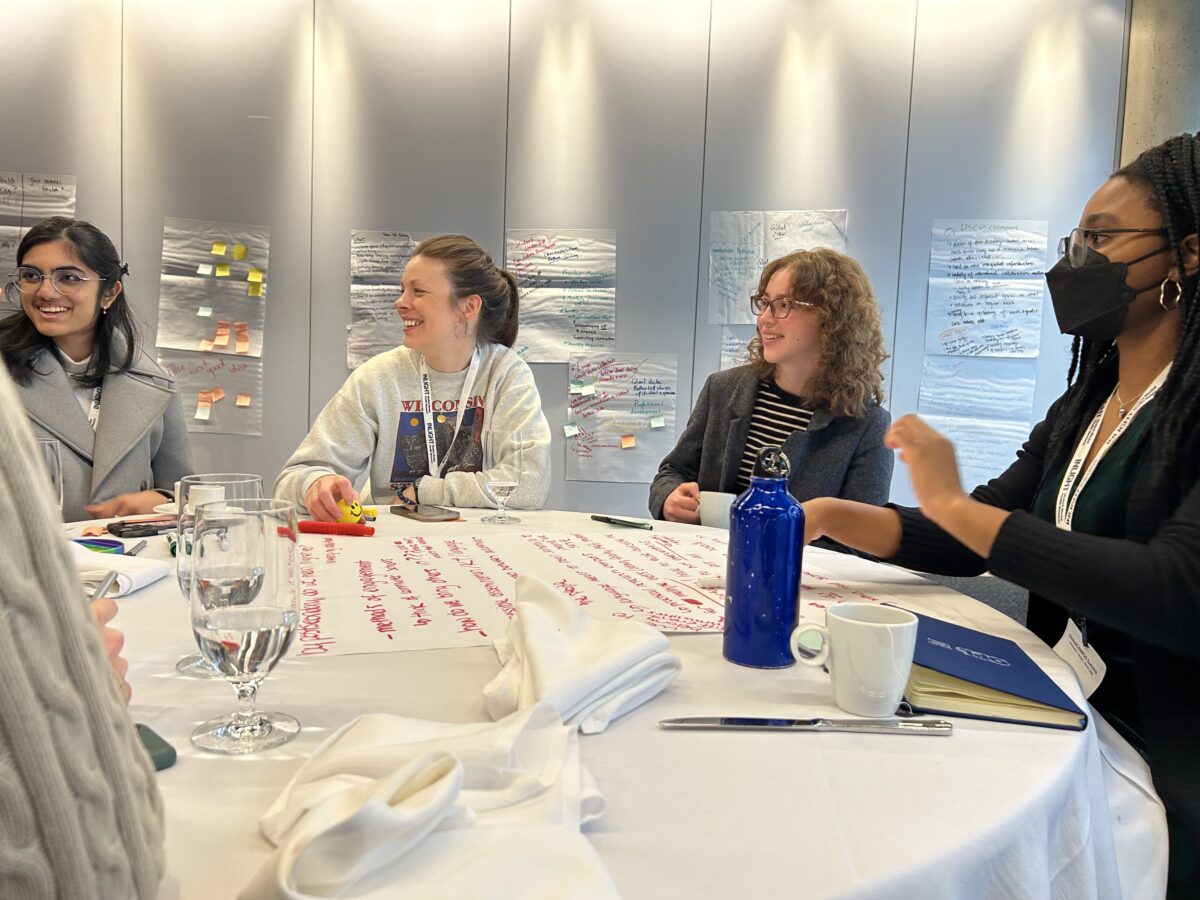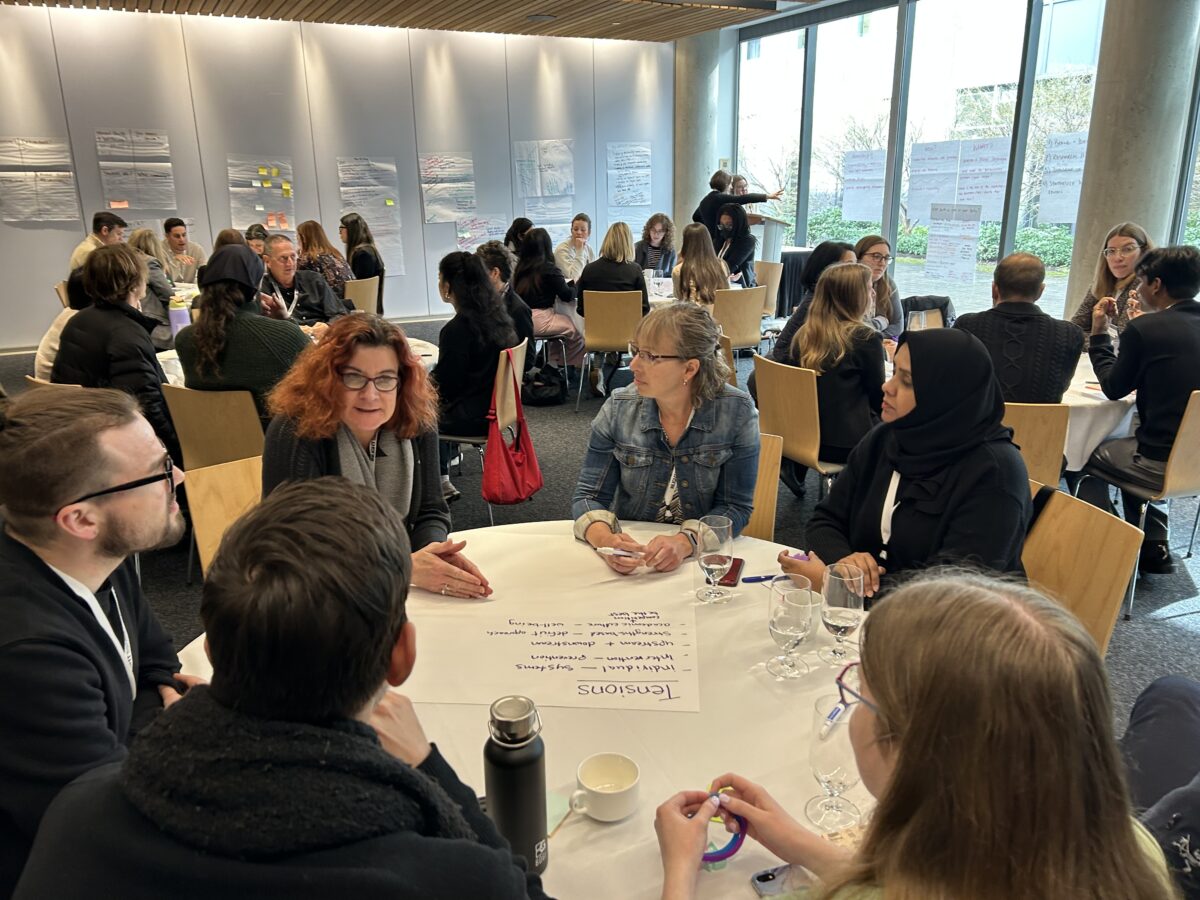In March 2025, Kristin Cleverley, Director of Inlight and Associate Professor at the Lawrence Bloomberg Faculty of Nursing, led the first GlobalCAMPUS Summit in partnership with collaborators from the University of Toronto, Kings College London, and The University of British Columbia. This consensus-building event aimed to advance post-secondary student mental health research using a collaborative approach to better understand successes and challenges shared by other institutions.
The event was made possible through funding from the Social Sciences and Humanities Research Council (SSHRC) and support from Inlight, the Student Mental Health Research Initiative at UofT.
“In establishing a foundation to build this community we are providing student researchers an opportunity to learn and gather global perspectives on student mental health, strengthening their skills as researchers to affect meaningful change for students everywhere,” says Cleverley who is also the Rossy Chair in Campus Mental Health at the University of Toronto.
Held in Vancouver alongside the International Association for Youth Mental Health Conference, the Summit provided a dedicated space for researchers to share challenges and disseminate knowledge, while also providing an opportunity for student researchers to connect on the topic of student mental health.
“One of our primary goals for hosting this event was to create a space for student researchers to connect and collaborate, because the field of student mental research is often fragmented,” says Lexi Ewing, Engagement Lead at Inlight. “We were also very focused on trying to create a structured community of practice so that we would have a formal way for people to collaborate and create impactful change.”

The GlobalCAMPUS Summit team was motivated by the learnings from Inlight’s partners around the world, including researchers at King’s College London, where they have pioneered the establishment of a University Mental Health Charter. The charter, which is recommended by the Government of the United Kingdom, provides a framework for universities that outlines objectives and checklists for supporting student mental health.
Since the early days of Inlight, student researchers have expressed a strong desire for networking opportunities that would connect them with researchers from many different institutions, to expand their knowledge of how to address student mental health. The Summit aligned closely with Inlight’s mission of showcasing the transformative work being done in the field across provinces and internationally, while meeting needs identified by student researchers.
The GlobalCAMPUS Summit was student co-led and facilitated. This intentional approach ensures that the perspectives of student researchers are kept at the core of these discussions around post-secondary mental health. At this recent Summit, students provided feedback on the structure of the proposed community of practice, and helped to determine what topics students cared about most and needed to covered.
One key item the students suggested was a directory of researchers from around the world, who are doing work in this space. This tool would make it easier to connect and locate researchers and stay tapped into innovative being work being done to advance student mental health research.
Ewing also commended the phenomenal work of the student co-facilitators, who brought the conversation back to the focus of why many researchers are involved in this work in the first place.
“They really emphasized that this research on student mental health is about people’s lives. Real people, with real challenges, and it is important to remember this. Moving forward with heads and hearts, is something that I think is a unique perspective that we maintain because we involve students in our work,” says Ewing.
Dinarshan Chandrakumar an undergraduate student in the department of psychology at U of T Mississauga, attended the Summit and described the experience as a unique opportunity to meet and connect with like-minded students and researchers from around the world The summit they said, showed that by engaging in meaningful conversations, defining priorities, and identifying actionable strategies, a collaborative future could meaningfully advance research in post-secondary student mental health
“We all share the same commitment and vision for the future of mental health research. Being part of this summit left me feeling inspired to be part of a more connected collaborative future- and motivated to push myself to do better as well,” says Chandrakumar.
For Julia Pointon-Haas, a PhD candidate from King’s College London in the UK, attending the GlobalCAMPUS Summit was an exciting opportunity. In her doctoral work, Pointon-Haas is investigating peer support for student mental and well-being in post-secondary education and seeing so many passionate people gathered at this event from around the world, to make positive changes for students collectively, she says, was especially heartening.
“I think together we are using the Summit as a foundation for an exciting community of practice, made up of like-minded individuals working to improve student mental health through research and collaboration,” says Pointon-Haas. “I know the Summit is just the start of bringing great global minds together to create, evaluate and demonstrate impact in student mental health research.”
Moving forward, the collaborative focus of the newly established community of practice will play a crucial role in ensuring changes and improvements in student mental health can happen more quickly and effectively.
